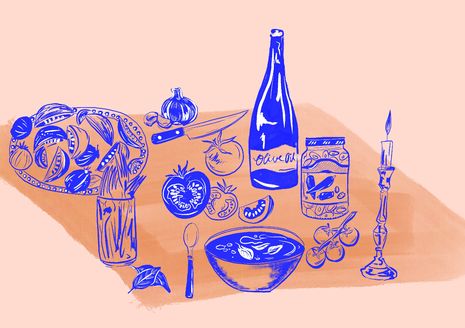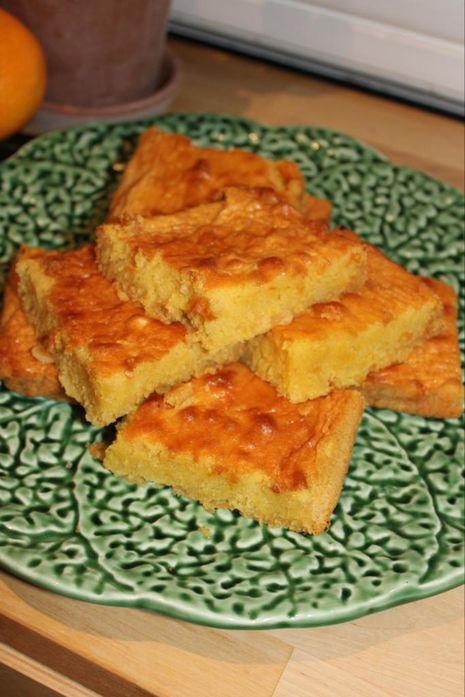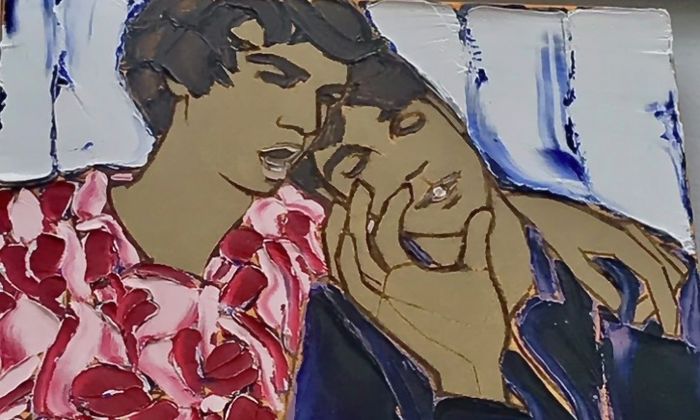Eating with Katherine Mansfield: the pleasures of food and the short story form
In an ode to Katherine Mansfield, Priya Abularach bakes Miss Brill’s honey cake and shares her musings on literature and food

In Katherine Mansfield’s story, ‘Bliss’, the artist Eddie Warren declares that the line, ‘Why must it always be tomato soup?’, is the most beautiful poetry he has ever read: ‘It is so deeply true, don’t you feel? Tomato soup is so dreadfully eternal’. Beyond satire, this is a comment on how much food can mean to us. Mansfield, who once declared that she ‘nearly sobbed’ at the delicious sight of a beef sirloin, clearly knew this well.
“Food in this story exists not to be eaten, but to be gazed upon”
But for all this, as Aimée Gasston points out, Mansfield’s characters seldom eat with any real gratification. They only snack, on meals as airy and insubstantial as the soufflé which Bertha serves to her guests in ‘Bliss’. Food in this story exists not to be eaten, but to be gazed upon: the fruit bowl is pure still life, more Cézanne than anything – ‘some yellow pears, smooth as silk, some white grapes covered with a silver bloom, and a big cluster of purple ones’. In her article on Mansfield, Gasston draws our attention to the stuffed deer’s head in ‘The Modern Soul’, which has a bib-shaped sign around it, kindly wishing us bon appétit before each meal. Tasty.
I had set out with the aim to cook or bake some of the food from Mansfield’s short stories – this did not bode well. Picture my happiness when, reading ‘Miss Brill’, I encountered a honey-cake, and not even one (!) stuffed deer’s head. This cake is Miss Brill’s ‘Sunday treat’, and buying a slice of it at the baker’s every week is the ritual that sustains – or perhaps redeems – her life, otherwise so devoid of joy, of sweetness. The honey-cake consoles; it also defies her misery, boredom and anguish.

Here is Mansfield’s testament to the great meaning which food can bring to our daily lives. It gives fictional form to Terry Eagleton’s observation – that ‘food, like literature, looks like an object, but is actually a relationship’. Though Miss Brill never eats her honey-cake in this story – devastated as she is by the taunts of two cruel strangers – its presence in the story is nevertheless a hopeful and a sensuous one, a characteristic that Gasston notes is typical of Mansfield's prose. In this spirit, I baked a honey-cake as Miss Brill would have appreciated it – adding the twist of some orange zest and almond flakes to bring out the flavours. And ta da! My magnum opus, as pictured above.
“What her letters and diaries show us is that, to her mind, the act of reading was analogous to that of eating”
Proud as I was of this cake, anyone truly adept at baking will know that it is not exactly a difficult recipe to pull off. A bit of an anticlimax, sorry. It’s surprising that Mansfield would invest so much in a dish as unimpressive as this one – and perhaps it’s even tempting to conclude that, in doing so, she was already casting a darkly ironic look on Miss Brill’s shining moment of joy. But there is another explanation for Mansfield’s decision to include a honey-cake in her story, one which came to me later, as I was very happily, and very smugly, sampling the cake I had made.
In the end, I decided that Miss Brill’s honey-cake was on one level an affirmation of life’s simple pleasures – because not everything has to be complicated – and, on another, a model for Mansfield’s own artistic practice. As Gasston points out, what her letters and diaries show us is that, to her mind, the act of reading was analogous to that of eating. ‘Dearest darling,’ she once wrote to her husband, ‘Two letters came – Saturday & Sunday, heavenly ones full of rashers of bacon & fried eggs & casseroles. Oh I love what you write to me’. Might not her short stories, then, be seen as food too? Or, as Gasston argues in her book, as a kind of cake, or snack? For much like these ‘minor cuisines’, the short story has often been dismissed as light fare, at least when compared to the hearty sustenance of a fully-fledged novel. By devoting Miss Brill’s most intense moment of defiance and self-expression to a humble honey-cake, Mansfield pushes back against those who would disdain its literary equivalent, the short story, and shows us readers that the form is as consequential as it is delicious.
 News / Cambridge academics sign open letter criticising research funding changes22 February 2026
News / Cambridge academics sign open letter criticising research funding changes22 February 2026 News / Supporters protest potential vet school closure22 February 2026
News / Supporters protest potential vet school closure22 February 2026 News / Student and union protesters hold ‘Trans Liberation Solidarity Rally’ 24 February 2026
News / Student and union protesters hold ‘Trans Liberation Solidarity Rally’ 24 February 2026 News / Union speakers condemn ‘hateful’ Katie Hopkins speech14 February 2026
News / Union speakers condemn ‘hateful’ Katie Hopkins speech14 February 2026 News / Hundreds of Cambridge academics demand vote on fate of vet course20 February 2026
News / Hundreds of Cambridge academics demand vote on fate of vet course20 February 2026










